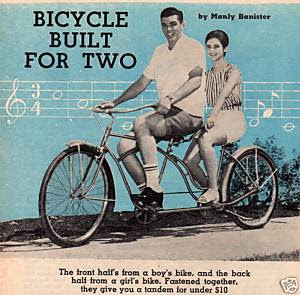In search for a good laugh and a great topic for today's post, I stumbled upon the National Association of Realtor (NAR)'s monthly housing fantasy ... err... economic forecast by their Chief Economist Lawrence Yun.
Dr. Yun's qualifications on housing finance come from his 10 years working in the NAR (which famously predicted the housing boom would continue into 2009), stints as a consultant with the Department of Veterans Affairs and Department of Education, and studying the great free market housing finance of the Soviet Union. He's even been named as one of the top 100 economists by the prestigious news publication, USA Today.
After listening to his podcast, several words came to mind: delusional, self serving, pollyanna and finally understatement. My high school friend Rustin W. of Oregon had suggested "understatement" for one of my posts. Thanks Rustin!
According to the dictionary, understatement makes something appear smaller or less important than it really is. It can be used to entertain (typical British Humor) or to reduce the importance of the truth (typical NAR).
Dr. Yun sees encouraging signs in the housing market as existing home sales were 23% higher than last year (which was the lowest level EVER). Great News!! More sales! We should expect the worst to be over and home prices should be rising, right? The NAR desperately believes so.
(Source: Federal Housing Finance Agency)
Understatement.
Dr. Yun goes on to say the worst of the job loss is over. 500K new private industry jobs have been created in the last six months. Last month 30k of new private sector were added. Understatement.
Realtors make their money on sales. The more sales the more money they make. It doesn't matter if the seller is a homeowner, a bank or a government. The New York Times recently published an article on Mr. Bill Bridwell of Golden Touch Realty, a realtor in Arizona who sells Fannie Mae foreclosed properties. Fannie Mae foreclosure sales represent fifty percent of Mr. Bridwell's business. Investors purchase many of these foreclosure properties. I wonder what percentage of expected existing home sales are from foreclosures due to foreclosure sales to investors?
Dr. Yun says the housing money has to "get back on its own feet without any government stimulus" in the next few months. Fantastic. Magically, borrowers will pay off all their debt, save for a 20% down payment (Detroit notwithstanding), and improve their credit scores. Dr. Yun doesn't mention over 95% of mortgages are financed by the Federal government via Fannie Mae, Freddie Mac and Ginnie Mae. Americans love our 5% mortgage rates. Understatement.
I'm sure the patriotic, kind hearted realtors through their trade group will announce a reduction in their fees to help the American economy by strengthen the weak housing market. The reduced fees would allow sellers to lower prices to make it easier for buyers to pay the downpayment and qualify for a loan. On a $200,000 house, a 2% lowering of fees will save the borrower $4,000 tax free! I'm sure the NAR will chip in and lower their fees from 6% to 4%. Right? Hello? Can you hear me? Can you hear me now?
Hmm, seems they are on the AT&T network.
Understatement.
Next week I'll talk about antidisestablishmentarianism.






